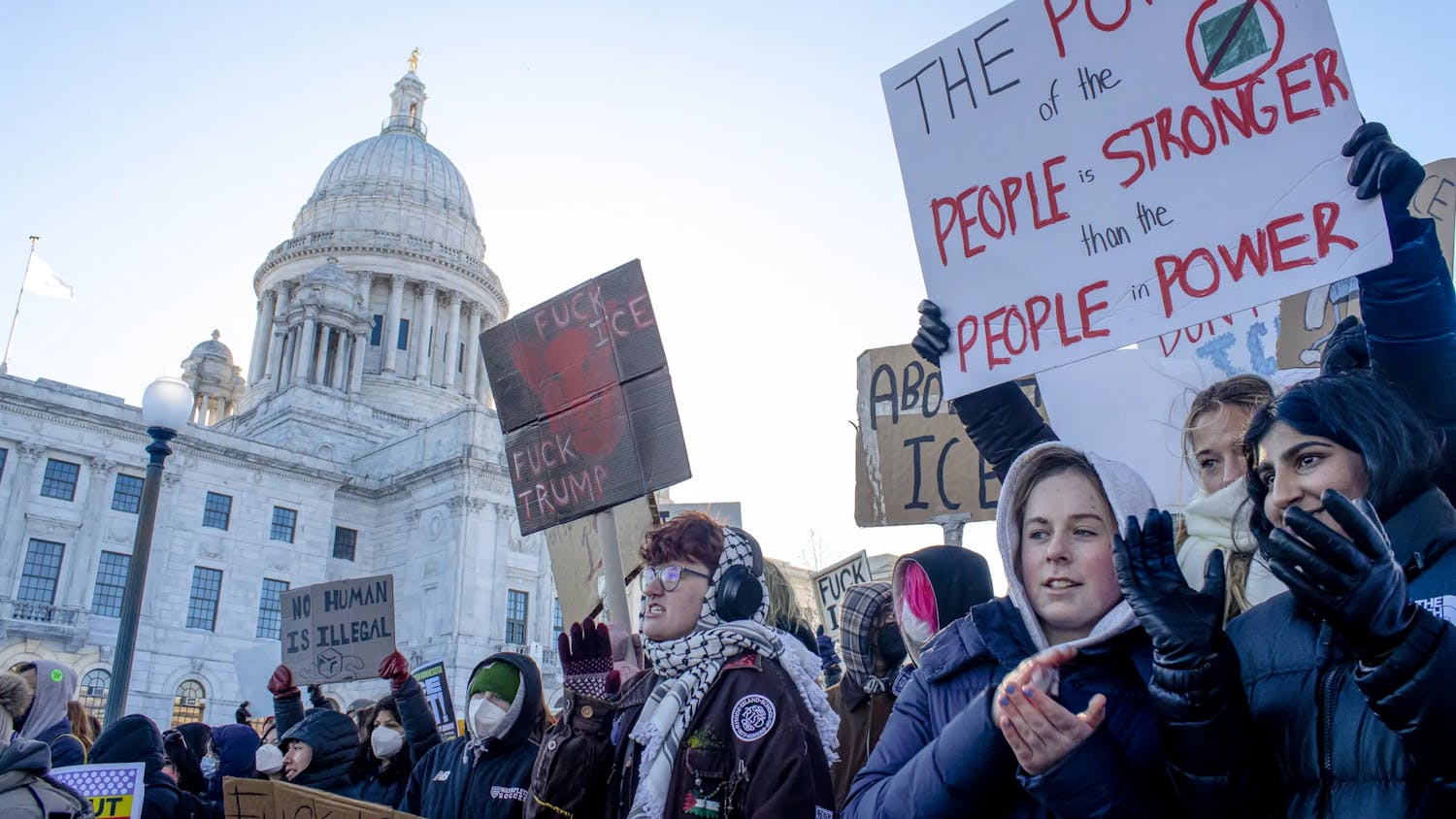The Providence City Council and the Providence City Archives hosted their annual Pillars on Race event in honor of Black History Month on Friday. The event included curated exhibits focused on racial history in Rhode Island looking at the “Four Pillars of Progress and Stagnation” — which include housing, education, development and structural racism, according to the event’s flyer.
City Archivist Caleb Horton said that the exhibit traces Providence’s racial history through the story of immigration from Cape Verde and examines the historical development of Fox Point, College Hill and South Providence. To explore this narrative, the exhibit explores historic racial discrimination in housing — including through local maps of redlining — as well as the contributions of housing activist and former Rhode Island State Rep. Maria Lopes and other topics.
For City Councilor Mary Kay Harris, the event signified change and progress, while giving the public a chance to reflect on what she described as often-hidden narratives. “I never had the opportunity to learn about Black history. I never had the opportunity to learn about my history,” Harris said. “Black history is American history.”
Brandon Brown, project procurement manager for the exhibit, said that the event offered a unique opportunity for attendees to engage with and immerse themselves in Providence’s history of racial inequity.
“Action has bred through the gathering of people,” Horton added. Even though there are many ways to learn about Black history on the internet, the tangibility of the historical artifacts and their personal connection with the community “makes an impact to make some memory.”
Mike Rollins, executive director of the East Side/Mount Hope YMCA and a professional saxophonist, played jazz at the event.
“Music is a healer. It’s a connector of people of all walks of life,” Rollins said at the event. For him, jazz is a celebration of Black history, culture and art — but also a way to unify people.
“Music has no face. Music has no color, no gender, no identity,” Rollins said. “What I’m doing, everyone can feel, and I can translate that into sound everyone can pick up.”
Poet Damont Combs — also known as Mr. Orange Live — performed spoken word poetry at the event. His three poems told the stories of the unfair treatment of Black people throughout history, Black homelessness and structural racism — as well as strength and hope within the Black community. Combs said at the event that remembering these stories is important: “A library is filled with books. But, if no one reads them, then where is the knowledge going?”
“There are still so many instances of injustices in our city. There is still so much work to be done,” Providence Mayor Brett Smiley said in his speech at the event. “It’s all of our obligation to take action to right those wrongs.”
Horton noted that he hopes that attendees left the event with an understanding that “we stand on the shoulders of giants,” as young activists continue the fight of the “people that came before us.”

Avani Ghosh is a contributing editor at The Herald. She previously served as a metro editor and covered city and state politics. She is a senior from Ohio studying Health and Human Biology and International and Public Affairs. She is an avid earl grey enthusiast and can be found making tea in her free time.





